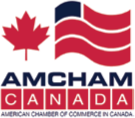Your voice for
cross-border
business

Canada’s digital services tax is not worth the risk
Oct 28, 2024

Opinion | By Rick Tachuk | October 28, 2024
The Hill Times
Our U.S. neighbours view the tax as a truly hostile move, posing significant consequences for trade between allies.
This past June, the Canadian government implemented the Digital Services Tax Act, which places a three per cent tax on revenues relating to online marketplaces, online targeted advertising, social media platforms, and user data. The federal government’s decision to implement the tax will unquestionably lead to higher prices and a degraded online experience for Canadian consumers while creating unnecessary tension between Ottawa and Washington, which could have negative, unintended results for Canadians.
The United States accounts for more than 75 per cent of Canada’s imports and exports, representing about $900-billion in trade each year. With many of the world’s largest digital service providers based in the U.S., American political and economic leaders view the tax as blatantly discriminatory. The U.S. government predicted the Canadian digital services tax (DST) could “cost U.S. exporters and the U.S. tax base up to $2.3-billion annually and could directly result in the loss of thousands of full-time U.S. jobs.” American companies won’t actually pay the taxes—Canadian consumers will.
After France implemented a similar levy, the Montreal Economic Institute found that what was then known as the GAFA (Google, Apple, Facebook, Amazon) Tax resulted in prices that went up by two to three per cent for clients of targeted firms.
With America headed for a new presidential administration—regardless of Donald Trump or Kamala Harris’ election—it’s already a risky time for U.S.-Canada relations. Both candidates are calling for changes in the Canada-United States-Mexico Agreement (CUSMA), and the U.S. Congress is pressing the current and any new administration to retaliate for the imposition of the DST. Indeed, U.S. lawmakers have already taken notice, and Canada’s new tax is facing significant backlash from both sides of the aisle. Republican members signed a July letter to the Biden administration saying “the time has come to make clear to Canada’s political leadership that the United States is done examining options and will act decisively to protect American workers, small businesses, and innovators.” In August, U.S. Trade Representative Katherine Tai announced that the administration has requested dispute settlement consultations with Canada under CUSMA to resolve the conflict: “The United States opposes unilateral digital taxes that discriminate against U.S. companies.”
Canada’s actions jeopardize its standing overseas, and its commitment to multilateralism. The new tax was implemented as the Organisation for Economic Co-operation and Development and G20 members negotiated a plan to update the global tax system to address profit shifting and develop an international digital tax framework. In July 2023, 138 of the 145 framework members agreed to hold off imposing DSTs to allow for more time for those talks. Canada was one of the few exceptions.
Canadian and U.S. businesses are united in this opposition to the DST. Earlier this year, the American Chamber of Commerce in Canada and the Canadian Chamber of Commerce issued a statement alongside the U.S. Chamber of Commerce recognizing that “the livelihoods of our workers and the prosperity of our citizens depend on the North American trade and investment partnership. At such a sensitive time in the trade relationship, we hope Members of Parliament remain committed to multilateralism and the importance of a common approach to the North American marketplace.”
Canadian lawmakers should heed their country’s own economic interests, while also being aware of how seriously this decision is being taken by our American neighbours. Regardless of intent, the digital services tax is viewed as a truly hostile move, posing significant consequences for trade between allies. It is simply not worth the risk.
Rick Tachuk is the president of the American Chamber of Commerce in Canada. Representing the views of major U.S. companies invested in Canada, he works closely with the U.S. Chamber of Commerce in Washington, D.C., and other national business associations as an advocate for the expansion of Canada-U.S. trade and investment.
Published by the The Hill Times - October 28, 2024


